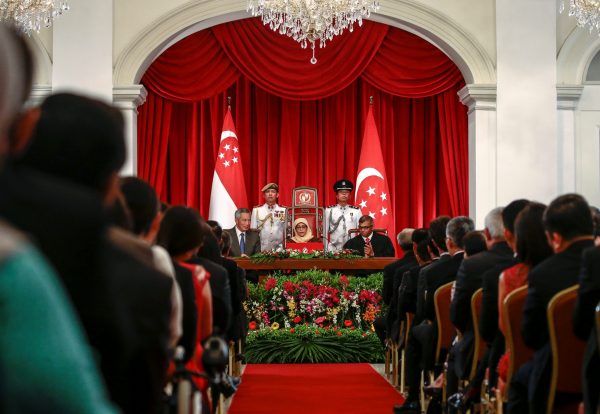In June 2017, the two siblings of Prime Minister Lee Hsien Loong, Lee Wei Ling and Lee Hsien Yang, took to Facebook to accuse their elder brother of abusing his power as prime minister in his efforts to prevent the demolition of the house of their father Lee Kuan Yew. In the opening sentence of the statement entitled ‘What has happened to Lee Kuan Yew’s values?’, the Lee siblings denounced the Prime Minister’s lack of ‘character, conduct, motives and leadership’.
The government convened for two days on 3 and 4 July 2017 to debate the allegations of abuse of power against Prime Minister Lee. As expected, he was exonerated of any wrongdoing. Prime Minister Lee said that he would not sue his siblings for defamation even though he had a ‘strong [legal] case’ because doing so would besmirch his parents’ names.
Following the parliamentary session, a public truce was announced and the issue ceased being aired in local and international media, although by that time it had already been extensively reported around the world. Although Singaporeans were relieved by the ‘ceasefire’, there is little doubt that confidence in the leadership had been rattled, with Prime Minister Lee himself admitting that Singapore’s reputation had been ‘damaged’.
The next saga that triggered discontent and increased scepticism was the way the reserved presidency played out. The electorate did not seem to mind the somewhat fraught decision to reserve the election for a Malay candidate in order to obstruct the presidential ambitions of Tan Cheng Bock — a former People Action’s Party (PAP) parliamentarian who became a popular but outspoken critic of the government and who narrowly lost the 2011 election. Nor did they mind the fact that Madam Halimah Yacob, the first female to be elected as Singapore’s president, is Indian — not Malay — by paternal descent according to Singapore’s system of racial identification.
But they did resent that no other presidential candidate was deemed eligible, which meant that voters could not exercise their right to cast a vote, even if just to endorse the PAP’s preferred candidate and legitimise the office of the reserved presidency. While it helps that Halimah as a former speaker of the Parliament is popular with many Singaporeans, her assumption of office with a weak mandate haunts the PAP leadership going forward and has drawn attention to electoral manipulation and malpractice.
Minister in the Prime Minister’s Office Chan Chun Sing — who is widely regarded as a future contender for the premiership — attempted to reframe the issue by declaring: ‘We are prepared to pay the political price [over the ethnically-reserved presidency changes] because we think the future of our country is much more important than any political capital that we may have’.
The government may rue making such a statement if it continues to demonstrate poor leadership in misreading public sentiments and taking the viewpoints of its citizens for granted.
Finally, 2017 in Singapore ends as it did back in December 2011 when a series of technical faults halted the efficiency of the MRT network. This time, new problems have emerged, including major flooding in a tunnel that led to the shutdown of the North–South Line for over 20 hours in October 2017.
It was discovered that the water pumps had failed because the crew responsible for the maintenance had faked the maintenance records. This was described by MRT CEO Desmond Kuek as ‘deep-seated cultural issues’.
Bearing in mind that the Minister for Transport Khaw Boon Wan — widely known as ‘Mr Fix-It’ — was appointed as transport minister in 2015 specifically to address Mass Rapid Transit (MRT) problems, it is easy to see how commuters are fast losing their patience. While apologies have been given repeatedly, the MRT leadership has yet to take ultimate responsibility — the admission of culpability.
The government may have unwittingly redefined efficiency and strong leadership to deal with more immediate sagas and crises in 2017. This may have consequences in 2018 and beyond as Singaporeans taper their expectations of a leadership that is becoming more ordinary with each passing year.
Terence Lee is Associate Professor in Communication and Media Studies and a Fellow of the Asia Research Centre, Murdoch University.
This article is part of an EAF special feature series on 2017 in review and the year ahead.

